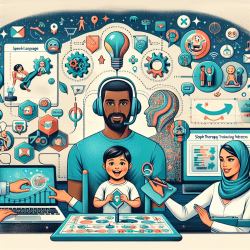Introduction
Autism Spectrum Conditions (ASC) present a diverse array of challenges and characteristics. The heterogeneity within ASC makes it crucial for practitioners to adopt data-driven approaches for better understanding and treatment. A recent study, Unsupervised data-driven stratification of mentalizing heterogeneity in autism, provides valuable insights that can be leveraged by practitioners to enhance their skills and improve outcomes for children with ASC.
Understanding Mentalizing Heterogeneity
The study employs a novel clustering approach to identify five distinct subgroups within the ASC population based on performance in the Reading the Mind in the Eyes Test (RMET). This stratification is crucial as it reveals that not all individuals with ASC experience the same level of difficulty in mentalizing, which refers to the ability to understand others' emotions and mental states.
Three of these subgroups show significant impairments, while the remaining two perform within the typical range. This finding emphasizes the need for individualized approaches in therapy and education, aligning with the goals of precision medicine.
Implementing Findings in Practice
Practitioners can apply these findings by:
- Recognizing the diversity within ASC and avoiding a one-size-fits-all approach.
- Utilizing assessments like RMET to identify specific subgroups and tailor interventions accordingly.
- Focusing on data-driven strategies to enhance the precision of diagnosis and treatment plans.
By embracing a stratified approach, practitioners can better address the unique needs of each child, leading to more effective interventions and improved outcomes.
Encouraging Further Research
The study highlights the importance of continued research into the heterogeneity of ASC. Practitioners are encouraged to stay informed about emerging research and incorporate new findings into their practice. Collaborating with researchers can also provide valuable insights and contribute to the advancement of the field.
Conclusion
Understanding and addressing the diverse needs of individuals with ASC is crucial for effective therapy and education. By utilizing data-driven stratification methods, practitioners can enhance their skills and improve outcomes for children with autism. For those interested in delving deeper into this research, the original paper offers a comprehensive analysis of mentalizing heterogeneity and its implications for practice.
To read the original research paper, please follow this link: Unsupervised data-driven stratification of mentalizing heterogeneity in autism.










